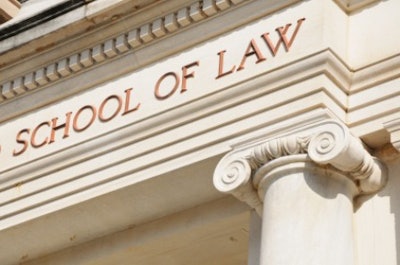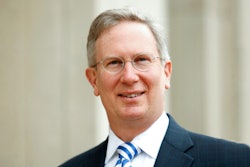
For members attending the AALS conference in New York—which began yesterday and will last until Sunday—they are clear that law school remains the correct choice for clear and committed students. AALS is a non-profit educational association of 176 law schools representing more than 10,000 law faculty with the purpose of improving the legal profession through legal education.
“In a society in which law is as important as it is to ours, where law is becoming more … complex, more … global and the populations that lawyers serve more … diverse, we want to encourage the people for whom it is absolutely the right choice to continue to go to law school,” said Lauren Robel, Indiana University provost and executive vice president and immediate past president of AALS.
Daniel Rodriguez, dean of the Northwestern University School of Law and AALS president-elect, said accusations that law schools are failing are largely unfounded. Many law schools are implementing innovative programs to facilitate employment opportunities. Various innovations are also being explored to make law school more affordable—from accelerated programs to distance learning components.
“Our member schools are carrying out their programs of legal education at, by and large, a high level,” Rodriguez said. “They are equipping students with foundational knowledge in the law, practical skills, exposing them to interdisciplinary perspectives and giving them the equipment to perform at a high level in not only legal practice, but in all positions where legal training is an asset.”
AALS president Leo Martinez of the University of California Hastings College of Law noted that change is part of the history of legal education. In recent years, an increasing number of law schools have added legal clinics, where students are actively engaged in working with clients.
“Almost all of our law schools have programs that are focused directly on issues of access to justice and social justice,” said Robel. “They often take place in clinics, where students are actually representing people.”
He continued, “our students are representing everyone from victims of domestic abuse or need help because they’re tenants being evicted to people with a whole run of legal problems faced by people of limited means. Also, our schools are collaborating in various kinds of projects that allow us to provide direct legal services.”
AALS conducts a clinical conference that allows faculty members that teach in clinical settings to learn about effective practices and exchange ideas. “As lawyers, we’re in the justice business and law schools are as well,” said Rodriguez. “We do the best, in my view, in promoting social justice and access to justice when we do so not only by reflecting internally, individually as an institution about how to do that, but to partner with segments in the legal profession—in the bench and the bar—and organizations of all sorts that themselves have a commitment, a passion to and an investment in promoting social justice outcomes and developments.”
Rodriguez noted that a number of law schools in the South (with more anticipated in the year ahead) are supporting the work of underserved public defenders through the organization Gideon’s Promise.
“That is a singular example of a partnership between various law schools, organizations, governmental organizations and law firms in promoting just the kinds of social justice objectives that are at the heart of what we as professionals need to do to implement justice in the legal profession,” said Rodriguez.
Martinez said he’s involved in several public interest organizations in the San Francisco Bay area and has gotten positions at those organizations for four or five of his students.
No doubt, law schools have been cautious in hiring new faculty due to diminished attendance and have asked current faculty to take on increased responsibilities. Despite these changes, Robel, Rodriguez and Martinez all said there will not be a decrease in the availability of courses in civil rights, employment discrimination or other discrimination issues.
“I’d be surprised, quite frankly, if a number of our member schools are making financial sacrifices by tossing away those courses in the curriculum or tossing away faculty who teach in that curriculum,” Rodriguez said. “I would be quite disappointed and worried if part of the solution to the significant budget issues that law schools face is to throw under the bus as it were absolutely fundamental courses that are connected with our social justice mission.”


















